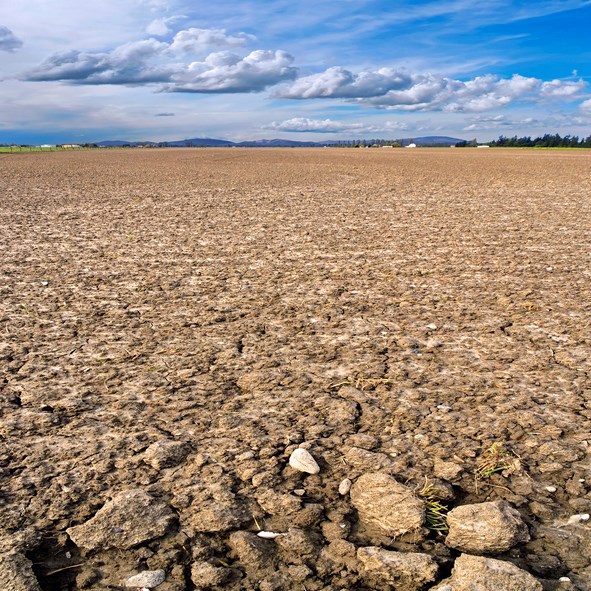The drought baking farmland in hot, dry conditions has many Saskatchewan producers looking for help with their withering crops.
“Crops remain extremely stressed from the lack of moisture and continue to advance quickly due to the heat and dry conditions throughout the growing season,” Thursday's provincial crop report said.
As the Saskatchewan government and Opposition ask Ottawa for relief, crop development has stumbled. About 51 per cent of fall cereals, 52 per cent of spring cereals, 50 per cent of oilseeds and 49 per cent of pulse crops are at their normal stages of development for this time of year, according to the report.
Some cloud cover gave parts of the province a brief reprieve from the heat, but any rain will only help maintain crop yields, not increase them, the report noted.
Glenn Wright, a farmer near Delisle, said the weather has “devastated” his crops with less than 50 millimetres of rain since the start of April.
“And with everything so dry, I worry about grass fires or even crop fires roaring across the countryside,” Wright said in National Farmers Union statement.
The statement urged western premiers and the federal government to raise AgriStability compensation rates to 80 per cent, trigger the AgriRecovery program and combat climate change to avoid more frequent and intense droughts.
It also called for “extraordinary steps” to prevent a sell-off of cattle herds. Those include “maximizing crop tonnage that can be salvaged as livestock forage” and programs for new and small farms that may be exposed under present risk management programs.
Saskatchewan NDP Leader Ryan Meili returned to Saskatoon from a tour of stricken areas to call on the provincial and federal governments to release a “substantial” relief package for farmers.
As climate change makes drought and extreme weather more common, more infrastructure is needed to help farmers struggling with feed, water and finances, he said.
“Failure to act now risks farm and ranch losses, deep financial and emotional impacts for families and major negative repercussions for the Saskatchewan economy,” Meili and NDP agriculture critic Trent Wotherspoon wrote in a letter to Premier Scott Moe and Prime Minister Justin Trudeau.
Wotherspoon called it “total crop loss” that he had never seen before.
Agriculture Minister David Marit wrote back thanking the NDP for its “recent interest” in agriculture and rural Saskatchewan, but added that it wasn't "clear what the NDP are calling for."
Marit said the government is exploring its options with other provinces and Ottawa. He also wants the federal government to step in to enact an AgriRecovery program that will help farmers dealing with extreme conditions, echoing the NFU's proposal.
Marit pointed to measures the province rolled out last week, including Saskatchewan Crop Insurance Corporation’s (SCIC) solution to double its low-yield appraisal threshold. He similarly nodded to tripling funds available for livestock producers through the Farm and Ranch Water Infrastructure Program (FRWIP) for dugouts, wells and pipelines.
The maximum rebate allowed by FRWIP was increased from $50,000 to $150,000 until March 31, 2022, with a 50-50 cost-share for the first $50,000 and a 70-30 government-producer split for the remaining $100,000.
Wotherspoon has suggested lowering the minimum farm income needed to trigger support from FRWIP from $50,000 — which he says shuts out smaller farms — to $10,000.
Wright, the farmer near Delisle, said he worries that droughts like this will only grow more common.
“If we don’t act much faster to reduce (greenhouse gas) emissions in Canada and around the world, these kinds of punishing droughts will become more frequent and intense,” he said.




